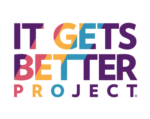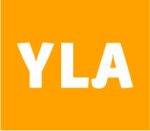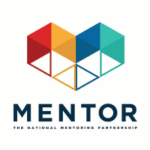Prevention & Intervention
- Alcohol and Drugs (24)
- Behavior Management (21)
- Bullying (70)
- Cyber Bullying (46)
- Foster Youth (44)
- Gangs and Violence (30)
- Homeless and Runaway Youth (16)
- Mentoring Programs for Youth (25)
- Safety (59)
- School Counseling (20)
The Trevor Project is the leading national organization focused on crisis and suicide prevention efforts among lesbian, gay, bisexual, transgender and questioning (LGBTQ) youth.
This campaign is designed to empower individuals to talk openly about mental illness, recognize symptoms, utilize local resources and seek help for a variety of communities.
Created out of the sheer necessity to bring awareness to severe bullying amongst LGBTQ students, the It Gets Better Project has thousands of videos of people who were formerly bullied and have succeeded to become empowered and strong individuals despite their past situations.
In order to foster a more accepting society and empower youth, The Born This Way Foundation was established in 2011 to be a safe place for young students who are being bullied, have been abused, or who have drug and alcohol dependencies.
The mission of Youth Leadership America (YLA) is to develop and inspire America’s young leaders through collaboration with community leaders and mentorship for the collective benefit of the students and the community.
The NCPC provides tools that communities can use to learn crime prevention strategies, engage community members, and coordinate with local agencies to help keep themselves and their community safe from crime.
MENTOR helps children by providing a public voice, developing and delivering resources to mentoring programs nationwide and by promoting quality for mentoring through standards, cutting-edge research and state of the art tools.
Connecting to Success (CTS) is an innovative model for mentoring that connects young people with disabilities to caring adults in the community. In this model, the primary communication between mentor and mentee is through e-mail with occasional face-to-face meetings incorporated into the program. CTS was developed by the National Center on Secondary Education and Transition (NCSET) at the University of Minnesota. The goal of CTS is to help youth develop social competence, academic motivation, career awareness, and improved reading and writing skills.
The California Research Bureau summarizes findings from interviews with homeless youth regarding their living arrangements, needs, and hopes for policy change.
The Child and Adult Care Food Program (CACFP) offers reimbursements for shelters that provide meals to homeless children. Contact information for each state’s CACFP-related agency is included.
RHYTTAC’s resource library with various information sheets, tips, guides and more for educators, families, and runaway and homeless youth. All resources cover topics spanning from positive youth Development, best practices in LGBTQ homeless youth, and more.
This list includes regional and nationwide support organizations for youth that age out of foster care.










